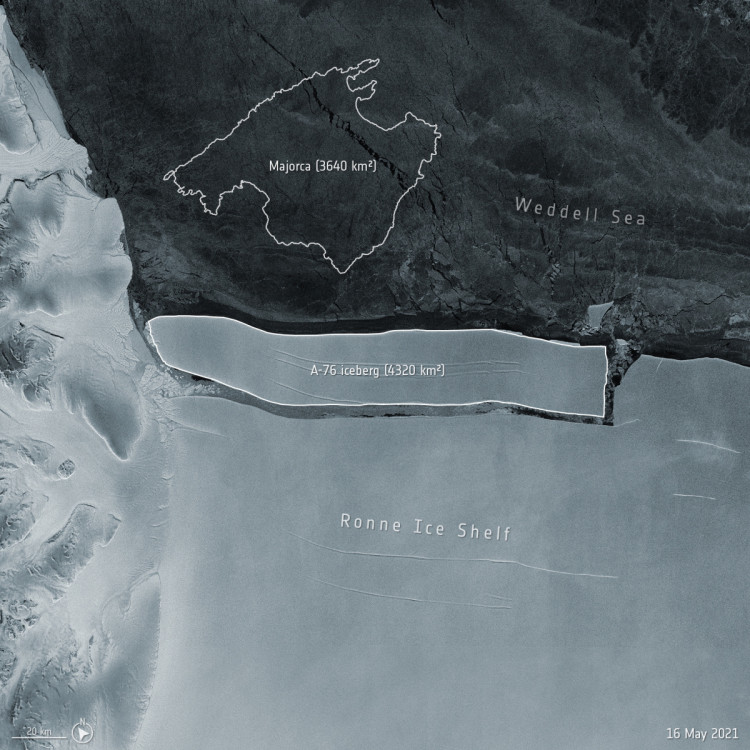After breaking off the Antarctic Peninsula in July 2017, the world's largest iceberg moved north on a three-year death march, dumping an inconceivable amount of meltwater into the sea. A recent study of the iceberg (designated A-68a) reveals how much water the infamous mega-berg truly lost - and how this may affect the surrounding ecosystem for years to come.
A new satellite-based study follows the aftermath of the once-mighty iceberg A-68a, which held the world's largest iceberg title for more than three years before fracturing into a dozen pieces.
There was some concern that the iceberg may endanger South Georgia, a penguin-filled island about 940 miles (1,500 kilometers) northeast of the Antarctic Peninsula. Thankfully, that didn't happen, but recent research shows that the iceberg filled the area with fresh water, potentially disrupting the local ecosystem and offering yet another illustration of the effects of global warming on the oceans.
Sentinel-1 (managed by the European Space Agency), Sentinel-3 (ESA), CryoSat-2 (ESA), and ICESat-2 (NASA) missions, as well as the Moderate Resolution Imaging Spectroradiometer, or MODIS, instrument that flies aboard two NASA spacecraft, Aqua, and Terra, were all used in the study.
According to a news release from United Kingdom study participant University of Leeds, during the iceberg's three-month melting period in late 2020 and early 2021, the former A-68a flushed into the ocean about 162 billion tons (152 billion metric tonnes) of freshwater - equivalent to 61 million Olympic-sized swimming pools.
The team's research noted the iceberg briefly impacted the bottom near South Georgia; nevertheless, A-68a had thinned so much at that point that it did not become lodged. By late December 2020, the iceberg had begun to break up, lessening the risk to South Georgia's animal population even further.
Iceberg A-68a had entirely melted by April 2021. In slightly over three years, the frozen object lost almost 1 trillion tons (900 million metric tons) of ice.
According to the study's authors, even though the iceberg has vanished into the sea, the effects on South Georgia island and the surrounding sea life may not be over. As A68a discharged fresh water into the salty sea surrounding the island, it also dumped nutrients that might increase biological output, potentially changing the species of plankton that thrive there. According to the researchers, this surge could have far-reaching effects on the local food chain, though whether this will be positive or bad in the long run remains to be seen.
The study was accepted for publication in the journal Remote Sensing of Environment.






